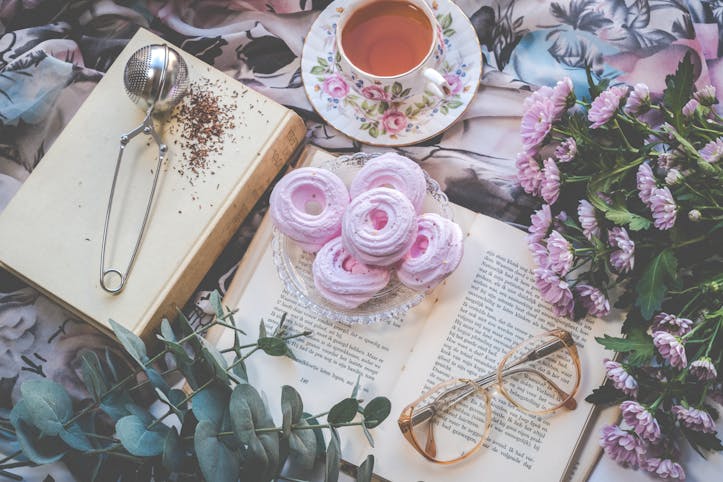Fasting Tea Benefits: Can You Drink Tea While Fasting?
When embarking on a fasting journey, it’s common to question what liquids are permissible without breaking your fast. Among these, the role of fasting tea is often discussed and debated. Understanding the impact of tea on your fasting state can help you make informed decisions and potentially enhance your fasting experience.
Understanding Fasting and Its Variations
Fasting, the voluntary abstinence from food and drink for a specific period, has been practiced for centuries for both religious and health reasons. Intermittent fasting, in particular, has gained popularity for its potential benefits in weight loss, metabolic health, and longevity. Depending on the type of fast, the rules about what you can and cannot consume will vary.
The Role of Tea in Fasting
Tea is a beverage that is often considered acceptable during fasting because it is low in calories. When you are fasting, the goal is to minimize the intake of energy so that the body can focus on other processes, such as detoxification and repair. Drinking tea, especially herbal or green tea, can provide a comforting, calorie-free option that doesn’t significantly affect blood sugar levels or disrupt the fasting state.
Can You Drink Tea While Fasting?
The short answer is yes, you can drink tea while fasting, as long as it is plain tea without added sugar, milk, or cream. These additives can contribute calories, potentially breaking your fast. Pure tea, on the other hand, contains minimal calories and is unlikely to take you out of the fasting state.
Benefits of Drinking Tea During Fasting
There are several benefits to drinking tea during fasting periods:
- Appetite Suppression: Certain teas, such as green tea, contain catechins and caffeine that can help suppress hunger and make fasting periods more manageable.
- Hydration: Staying hydrated is crucial during fasting, and tea can contribute to your daily fluid intake without breaking your fast.
- Enhanced Metabolic Rate: The caffeine in tea can slightly boost your metabolism, aiding in fat burning during fasting.
- Antioxidant Properties: Tea is rich in antioxidants, which can combat oxidative stress and contribute to overall health.
Types of Tea and Their Impact on Fasting
Not all teas are created equal when it comes to fasting. Here is a breakdown of common teas and their suitability for fasting:
- Green Tea: Known for its health benefits, green tea is an excellent choice during fasting due to its low calorie content and metabolism-boosting properties.
- Black Tea: Another good option for fasting, black tea has zero calories and can provide a stronger flavor and caffeine boost.
- Herbal Tea: Herbal teas, such as peppermint or chamomile, are calorie-free and can be soothing during fasting periods.
- Fruit-Infused Tea: Be cautious with fruit-infused teas as they may contain extra sugars. Always opt for natural, unsweetened versions.
It’s important to note that while tea can be beneficial during fasting, excessive caffeine intake should be avoided. Moderation is key, and it’s recommended to limit tea consumption to a few cups per day during fasting periods.
Precautions When Drinking Tea While Fasting
Before incorporating tea into your fasting regimen, consider the following precautions:
- Monitor your body’s response to tea, as some individuals may experience digestive discomfort.
- Choose organic teas to avoid potential contaminants that could affect your fast.
- Be mindful of the timing of your tea consumption, as caffeine can disrupt sleep if consumed too close to bedtime.
In summary, tea can be a valuable addition to your fasting routine, offering a range of benefits and making your fasting experience more pleasant. Whether you are practicing intermittent fasting or other forms of fasting, plain tea can provide hydration, appetite suppression, and a boost of antioxidants without compromising your fast.
Drinking plain tea during fasting is permissible and can offer benefits like appetite suppression and hydration without breaking the fast.
Recent Posts
- Fasting Tea Essentials: What Teas Can You Drink While Intermittent Fasting?
- Fasting Tea: Enhancing Your Intermittent Fasting Experience
- Fasting Tea Benefits: Can You Drink Herbal Tea During Intermittent Fasting?
- Unlocking the Secrets of Matcha Tea for Rapid Weight Loss
- Fasting Tea Essentials: Choosing the Right Blend for Intermittent Fasting
- Fasting Tea Benefits: Intermittent Fasting Rooibos Tea
- Fasting Tea: Unlocking Health Benefits with Green Fit Tea
- Fasting Tea: Exploring Herbal Options for Your Regimen
- Can I Drink Barley Bergamot Green Tea for Fast Weight Loss?
- Herbal Fasting Tea Amazon: A Guide to Choosing Your Blend
External articles
The health benefits of drinking tea while intermittent fasting. Drinking tea daily while intermittent fasting (or otherwise) can result in:. Fewer hunger pangs. Since the body is used to having a consistent source of calories throughout the day, the cravings that arise during the initial few days, weeks, and even months for some dieters can be a challenge.
Yes, you can drink plain tea and other calorie-free beverages, such as coffee, during fasting. The only exception is fasting for a blood test, when you should avoid all drinks, including plain tea or coffee, for 12 hours prior to the procedure. You should also drink plenty of water during both the eating and fasting windows.
It too has some significant science-backed results, including a reduction in breast cancer recurrence 10. According to integrative medicine doctor Amy Shah, M.D., water or low-calorie liquids of up to 20 calories are ideal during the fasting period. The verdict: Feel free to sip low- or medium-calorie drinks.
